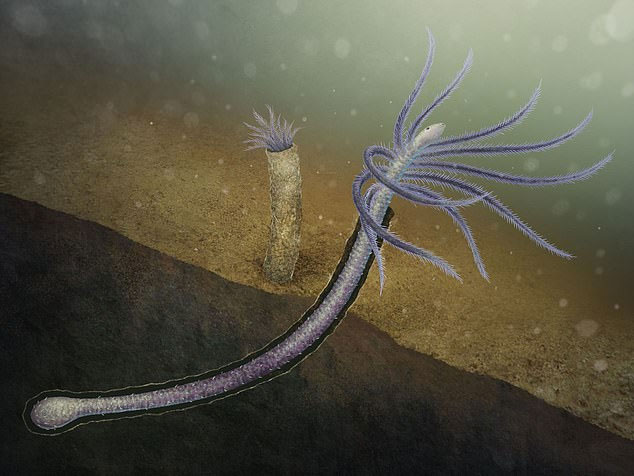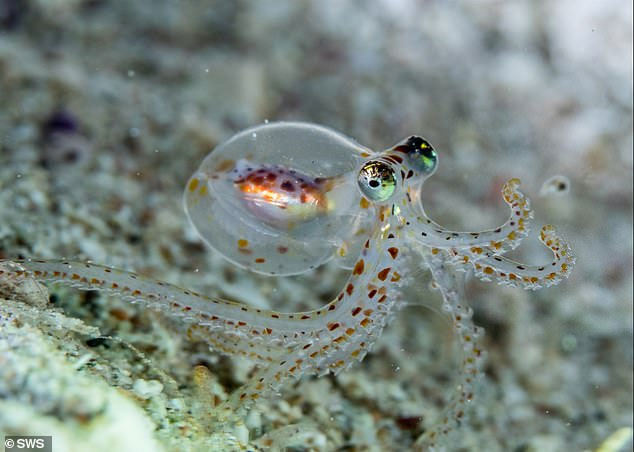Octopuses are highly intelligent creatures, and a new study suggests that this may be due to their brain structure resembling that of humans.
The Daily Mail reports that octopuses and humans share an evolutionary origin from the same primitive organism resembling a worm, known as Facivermis yunnanicus, which lived 518 million years ago. This may explain why these eight-limbed creatures are so intelligent.

Primitive organism Facivermis yunnanicus. (Photo: Daily Mail).
The species Facivermis yunnanicus is the earliest known example of the evolutionary process in animals to eliminate unnecessary body parts while exhibiting minimal intelligence.
Researchers at the Max Delbruck Center in Berlin, Germany, discovered that the brain structure of octopuses is similar to that of humans because these marine animals possess a significant number of gene regulators known as microRNA (miRNA) in their neural tissue, comparable to the amount found in vertebrates. The findings suggest that miRNA, a type of RNA gene, plays a fundamental role in the development of complex brains.
Co-author of the study, Professor Nikolaus Rajewsky, stated that this is evidence of a connection between humans and octopuses.
Scientists have long studied octopus intelligence, observing how they solve puzzles and open jars. They can use tools to achieve their goals, find coconut shells for shelter, stack stones to protect their dens, and recently, they have even been seen throwing stones at each other.

Octopuses have both a central brain and a peripheral nervous system. (Illustration: Daily Mail).
The study analyzed 18 different tissue samples from octopuses and identified 42 new families of miRNA, primarily in the brain.
The genes preserved through the evolutionary process of cephalopods have provided advantages and functional benefits to these creatures.
The lead author of the study, Dr. Grygoriy Zolotarov, remarked: “This is the third major expansion of miRNA families in the animal kingdom and the largest outside of vertebrates.” To illustrate, Dr. Zolotarov pointed out that oysters, which are also mollusks, have only 5 new miRNA families, while octopuses boast up to 90 new miRNA families.
Octopuses are the only species among invertebrates that possess both a central brain and a peripheral nervous system capable of independent functioning. If an octopus loses a tentacle, that tentacle can still sense touch and move independently. Octopuses are unique in developing such complex brain functions because they purposefully use their tentacles. They are also very curious and capable of remembering things. They can recognize humans and show preferences for certain individuals over others. It is believed that they may even dream, as they change color and skin texture while sleeping. |


















































